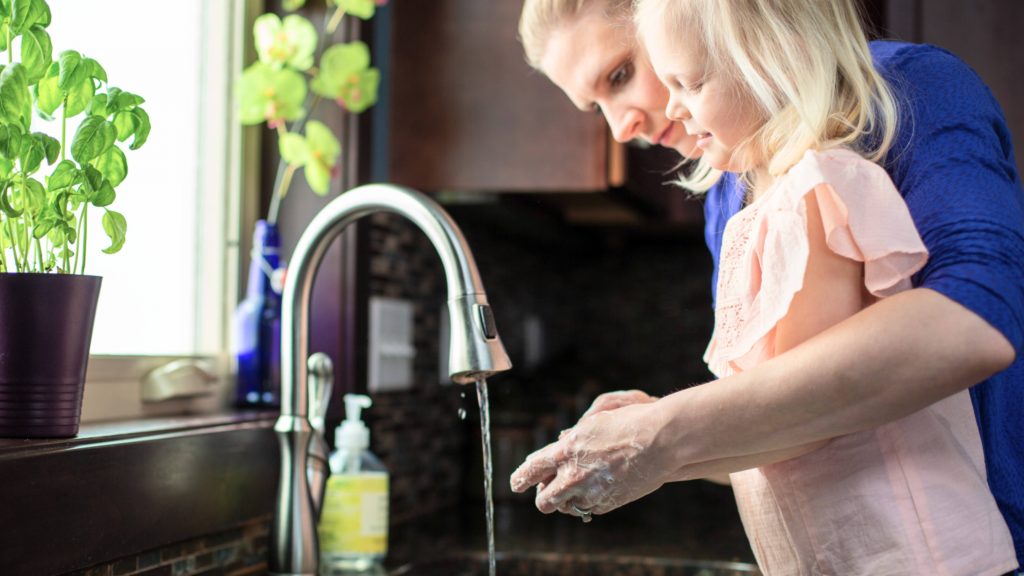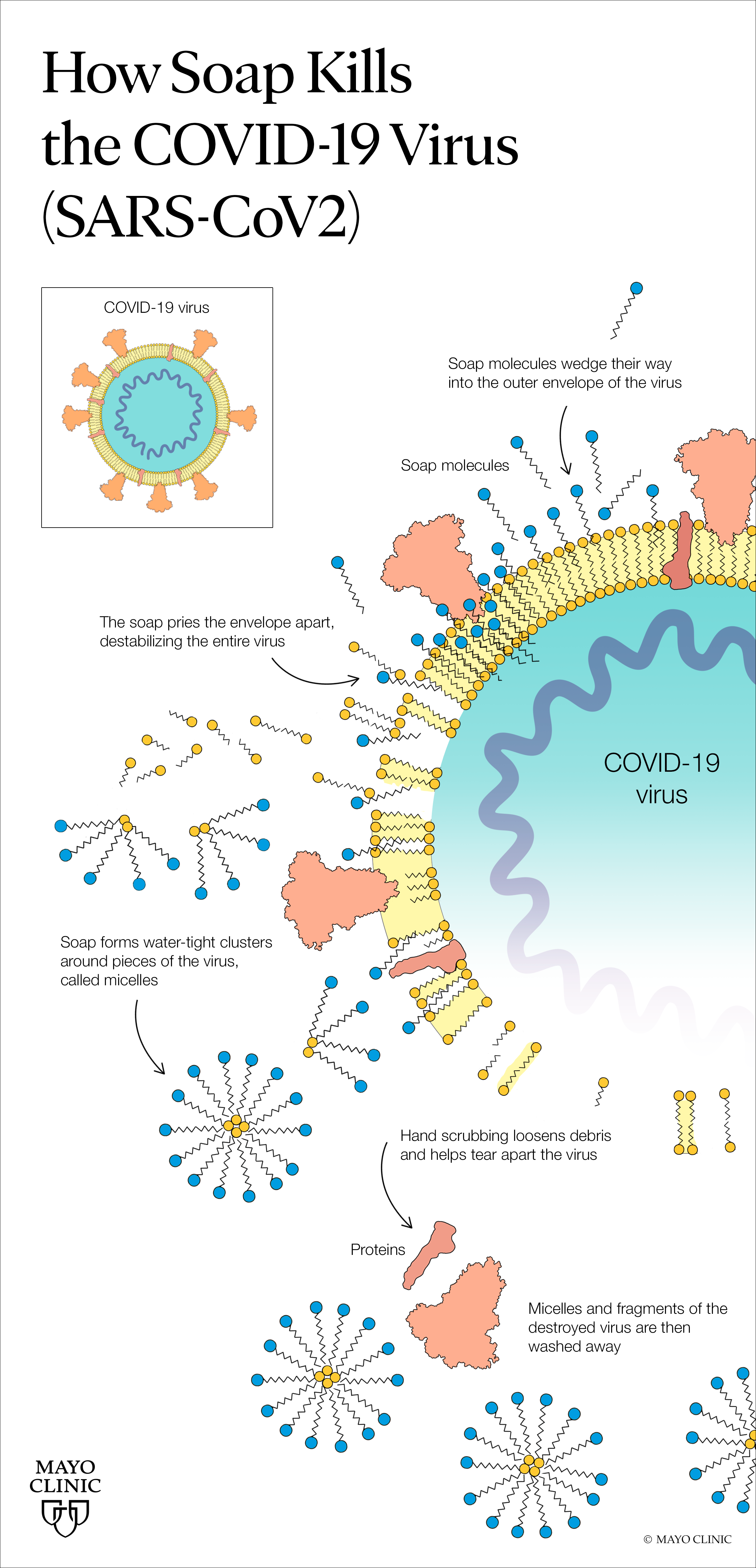-
COVID-19 expert explains what soap does to SARS-CoV-2 virus

Health experts at the Centers for Disease Control and Prevention (CDC) continue to drive home the message that excellent hand-washing is the most effective way to prevent illnesses, such as COVID-19. Dr. Gregory Poland, an infectious diseases expert and director of Mayo Clinic's Vaccine Research Group, explains what soap does to SARS-CoV-2, and other viruses and bacteria.
Watch: Dr. Gregory Poland explains what soap does to SARS-CoV-2 virus.
Journalists: Sound bites with Dr. Gregory Poland are in the downloads at the end of the post. Please courtesy "Gregory Poland, M.D. / Vaccine Research Group / Mayo Clinic."
Q. Why is washing your hands with soap and water the best?
A. Your hand has oils on it, and viruses stick to that oil. They have an electrostatic charge to them. But when you're washing with soap, soap has things that decrease surface tension in them so you are physically rubbing by friction and washing away that virus. It is the most effective thing we know to do. That's why surgeons, for example, scrub their hands so very carefully before they go into an OR. It works, and it works really well.
When washing your hands, follow these steps:
- Wet your hands with clean, running water — either warm or cold.
- Apply soap and lather well.
- Rub your hands vigorously for at least 20 seconds. Remember to scrub all surfaces, including the backs of your hands, wrists, between your fingers and under your fingernails.
- Rinse well.
- Dry your hands with a clean towel or air-dry them.
Mayo Clinic Minute: How to properly wash your hands
Journalists: Broadcast-quality video (TRT 1:00) is in the downloads at the end of this post. Please "Courtesy: Mayo Clinic News Network." Read the script.

Q. What about hand sanitizer?
A. Second best is hand sanitizer. If you have mucous or dirt on your hands, hand sanitizer cannot penetrate that; whereas, soap literally washes that away.
Dr. Poland says when using hand sanitizer, it's important to use enough of it. He says a lot of people put a dime-size drop, when they need a quarter to a half dollar size amount of product.
If you use a hand sanitizer, make sure the product contains at least 60% alcohol. Follow these steps:
- Apply the gel product to the palm of one hand. Check the label to find out the appropriate amount.
- Rub your hands together.
- Rub the gel over all the surfaces of your hands and fingers until your hands are dry.
Related post: Hand-washing: Do’s and don’ts
_________________________________________________
Check with the CDC, for the latest updates on the COVID-19 pandemic. For more information and COVID-19 coverage, go to the Mayo Clinic News Network and mayoclinic.org.







